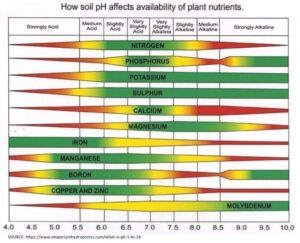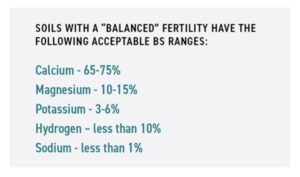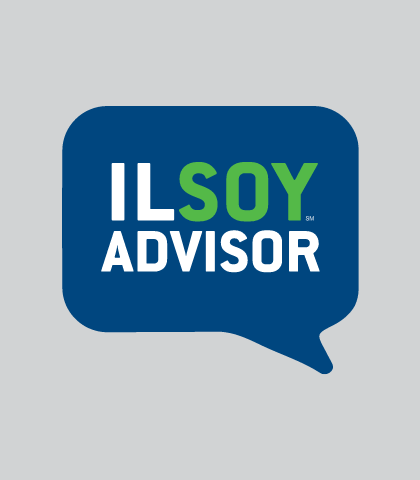What a season we have experienced so far! The weather has certainly been variable, especially here in Southern Illinois. While some have had an abundance of precipitation, others experienced droughty conditions. As we continue harvest, we must also begin planning for the 2023 crop, and fertility management becomes top of mind.
Some have already begun fertilizing for their 2023 corn and soybean crop and like last year, fertilizer prices are high. With high fertilizer prices, cutting corners and holding back money to spend on a crop, can become very tempting. One point I always like to drive home is that proper crop nutrition does not have a short-term effect. Proper crop nutrition obviously helps produce high yielding crops, but it can also limit crop diseases and help with weed management. Without proper crop nutrition, there is no food for the crop.
One thing to consider before cutting costs on fertilizer is identifying what is in the soil you are farming. Soil pH and base saturation are two of the most important parts. This is important because as shown in the chart, most nutrients are available from a pH of 6.0 to 7.0. Moreover, base saturation can have just as large of impact on nutrient availability as can soil pH. When looking at base saturation levels, calcium essentially gives air to the soil and magnesium is the ‘glue’ of the soil. It holds the soil together. This is important for microbial activity so they can convert fertilizer to readily plant available forms of nutrients. Ideal ranges for base saturation are below.


Once soils are balanced, the next step to proper crop nutrition for a soybean crop is sulfur. Sulfur is a nutrient that has been discussed a lot in recent years because of the Clean Air Act. The Clean Air Act reduced sulfur emissions into the atmosphere, limiting the amount of ‘free’ sulfur in the air and rainwater.
What role does sulfur play in a growing crop? Sulfur is important for stand establishment in cool, wet planting conditions. It can even help to promote rapid root growth in soybeans. Soybeans harvest sunlight to produce seed, and sulfur aids in chlorophyll production. Another extremely important role of S is to aid in the nodulation and nitrogen fixation process. Sulfur is taken up all throughout the growing season, with a peak uptake occurring around the R3 growth stage. During this time, a soybean plant can take up 0.3 pounds S/day. That equates to 0.18 pounds S/bushel.
What field should a farmer target for sulfur on soybeans? Cool, wet soils that are planted early will be a great place to start with sulfur applications. Other instances include sandy soils, soils with low organic matter and a low CEC, and soils with a high pH. Sulfur is immobile in the plant, but mobile in the soil. Because of sulfur’s mobility in the soil, it can be difficult to accurately measure available sulfur with a soil test. A Mehlich III soil test readings in the 10 to 20 ppm range are considered adequate levels of sulfur for soybeans.
What options do farmers have to apply sulfur? Based on research conducted at Purdue University, broadcasting 15 to 25 pounds of Sulfur with Ammonium Sulfate (AMS) at or near planting has provided a very consistent yield advantage. Other options include a liquid sulfur product that can be used as a carrier in a burndown or residual herbicide application. Numerous foliar, sulfur containing products are available, but it can be a challenge to get enough sulfur to the crop through a foliar application.
So, to bring this all home, when considering fertility programs for the 2023 soybean crop nutrient availability and sulfur applications needs to be at the top of our list. Ensuring nutrients are available so we can maximize yield and profitability is up utmost importance. Secondly, as farmers we always want to apply phosphorous and potassium on a regular basis which is great. However, sulfur is just as important if not more important. 80-100 pounds of ammonium sulfate/acre at or near planting is an excellent way to supply sulfur to a soybean crop.
Resources
https://extension.entm.purdue.edu/newsletters/pestandcrop/article/soybean-sulfur-solutions/




 and then
and then